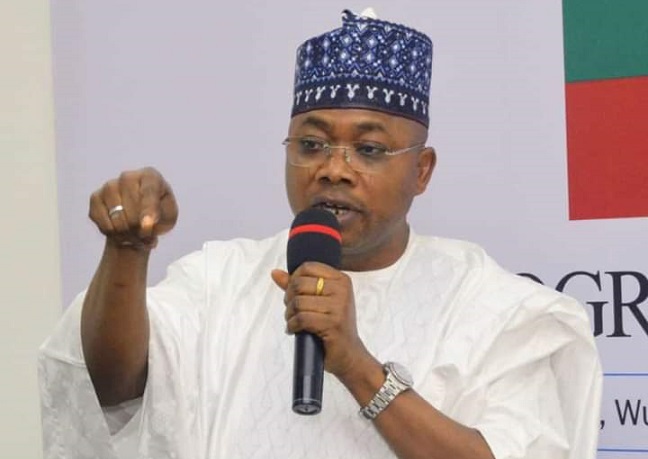The Governor of Central Bank of Nigeria, Olayemi Cardoso, has identified inflation as the primary threat to Nigerians’ economic welfare, committing to reducing it to single digits in the medium term.
Speaking at the 2025 IMF and World Bank Spring Meetings in Washington, D.C., he stressed the need to curb inflation to stabilize household incomes and enhance living standards nationwide.
“Inflation remains the most disruptive force against the economic welfare of Nigerians. Our focus is to bring it down to single digits over the medium term,” Cardoso said.
In March 2025, Nigeria’s headline inflation rate rose sharply to 24.23%, up from 23.18% in February, according to the National Bureau of Statistics.
The surge highlights persistent pressures on food prices, essential goods, and the overall cost of living, further deepening economic challenges for millions of Nigerians.
Amid these challenges, Cardoso noted increasing investor confidence in Nigeria’s reform efforts, referencing the country’s recent high-profile investment forum at the Nasdaq Market Site in New York.
The event highlighted Nigeria’s economic reforms and drew interest from global investors and the diaspora, signaling renewed optimism about the country’s economic outlook.
The Minister of Finance and Coordinating Minister of the Economy, Wale Edun reinforced Cardoso’s remarks, highlighting the government’s priority on economic growth and job creation.
At the IMF and World Bank meetings, Edun outlined Nigeria’s bold target of 7% economic growth, driven by investments in critical infrastructure, including digital connectivity, expanded data access, and fibre optic networks.
Edun emphasized the government’s strategy to boost domestic revenue and attract private sector investments, fostering a more business-friendly environment.
“By stabilizing the economy and driving private sector participation, we are creating sustainable jobs for young Nigerians and fostering inclusive growth,” Edun stated.
He reaffirmed the government’s commitment to fiscal discipline, noting that Nigeria’s reform program — encompassing fiscal, monetary, and structural policies — has gained recognition from international partners as being on the right track.










